When Rafael and I moved from my beloved San Francisco to Oakland eight years ago, we had a few reasons. In Oakland, we could afford to upgrade from a condo to a house with a yard and lower our expenses at the same time. We could feel less out of place than we did among the increasingly wealthy residents of our modern condo complex. I’d be closer to my job in downtown Oakland — and if I ever got a job in San Francisco again, it would be as easy to get to it via public transit as it was from our poorly served Potrero Hill neighborhood.
But our top reason for moving was community.
The elusiveness of community
Without deep, multi-generational ties to a place, town squares where people socialize, or regular church attendance (much as I dislike organized religion), community is sorely lacking in the lives of most Americans. That’s only getting worse as people become concentrated in large urban centers.
We wanted to rectify this situation in our own lives.
More and more of our friends were in the East Bay, and we found ourselves braving bridge traffic to see them more than was comfortable (forget taking public transit from our neighborhood) — and yet not often enough. We still had a lot of friends in San Francisco; I actually tallied them up, and the number was about equal to those in the East Bay. But a larger portion of our closest friends lived across the bay. That meant more planning was needed to see them, and the barriers to getting together were higher.
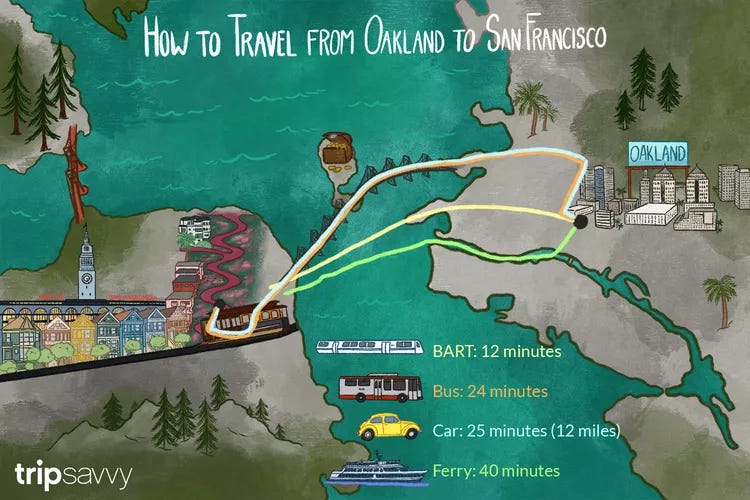

The East Bay friends distribution was a new situation for us, which had materialized partly due to an evolving group of friends and partly due to people moving around. It left us feeling that something was amiss.
Fleeting feelings of community
I’d enjoyed a few periods of feeling some community during my thirty years in San Francisco.
There was the decade when I lived alone in an apartment building in the Mission that some residents affectionately referred to as the “Dakota West,” after the New York building that’s been a co-op as long as I’ve been alive. At its best it felt like a friendly dorm, where you could wander up to the rooftop with views of the San Francisco skyline and a chance encounter might turn into a lifelong friendship.
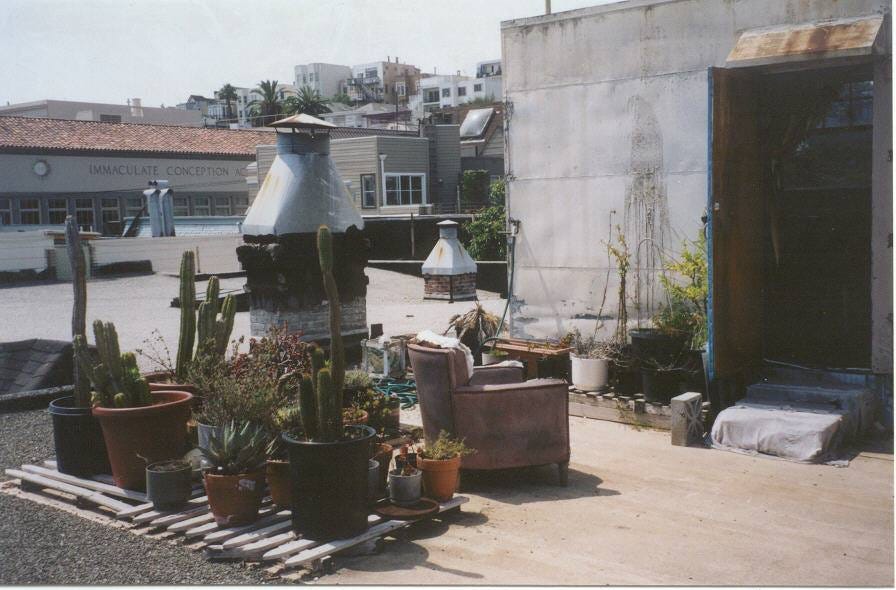
People in the building, some of whom had lived there for decades, celebrated birthdays together, watched fireworks together from the roof, slept together … some were even involved in years-long feuds. We had it all! Even a building pot dealer known as Mango (his real name escapes me). One New Year’s Eve we held a party in multiple apartments. If you were single, that building was a great place to be.
The feeling of community extended to my neighborhood, where I routinely bumped into people I knew from the building, salsa dancing, work, classes, and other parts of life. On the few warm San Francisco nights when everyone was drawn to linger outside, you could walk down Valencia Street and listen to music being played by people spilling out of the tiny Radio Habana Social Club — or go on to Little Baobab for some outdoor dancing. Wherever I wandered there, it was rare not to see at least one familiar face.
As fun as this was for a while, it was fleeting — as were the moments of community Rafael and I experienced in Potrero Hill.
We wanted something more lasting.
Embracing scruffy hospitality
Moving to the East Bay did step up our community game. It’s simply easier to get together with someone who lives a 5- or 10-minute drive away than when you might be stuck in stop-and-go traffic for an hour. We have more opportunities to be spontaneous. We even take those opportunities now and then.
But it’s still challenging. Everyone is so busy. Americans work too much, and even our friends who’ve managed to retire have packed schedules. I remember how busy I was during a couple short stints between jobs. Some friends are still caring for children; many of us have aging parents we want to spend time with while we can. Plus, everything in our complex modern lives seems to require extra time.
And we still don’t have many friends within easy walking or biking distance.
Given the reality of Bay Area real estate prices, we’d need to win a very large lottery to realize my dream of “semi-co-housing,” aka a bunch of friends buying houses on the same block. I’ll keep dreaming — but in the meantime, what do we do?
We can connect with the people who do live around us. Covid put a damper on getting to know our neighbors, but before that, semi-regular “porch beers” gatherings provided one way to connect. Last year we were able to host a National Night Out block party, and we’ll do more of those.
Meanwhile, I’m working on embracing “scruffy hospitality,” as defined by one Rev. Jack King:
Scruffy hospitality means you’re not waiting for everything in your house to be in order before you host and serve friends in your home. Scruffy hospitality means you hunger more for good conversation and serving a simple meal of what you have, not what you don’t have. Scruffy hospitality means you’re more interested in quality conversation than the impression your home or lawn makes. If we only share meals with friends when we’re excellent, we aren’t truly sharing life together.
Our Oakland backyard, which we’ve dubbed the R&R Spa, has been perfect for hosting “super-casual hangouts” in scruffy hospitality style. As the solstice approaches, I’m reminded of a year when I realized it would coincide with balmy weather — something you can’t count on in the Bay Area. I emailed some nearby friends the day before, thinking no one would come to a weeknight hangout on such short notice. Ten people showed up.
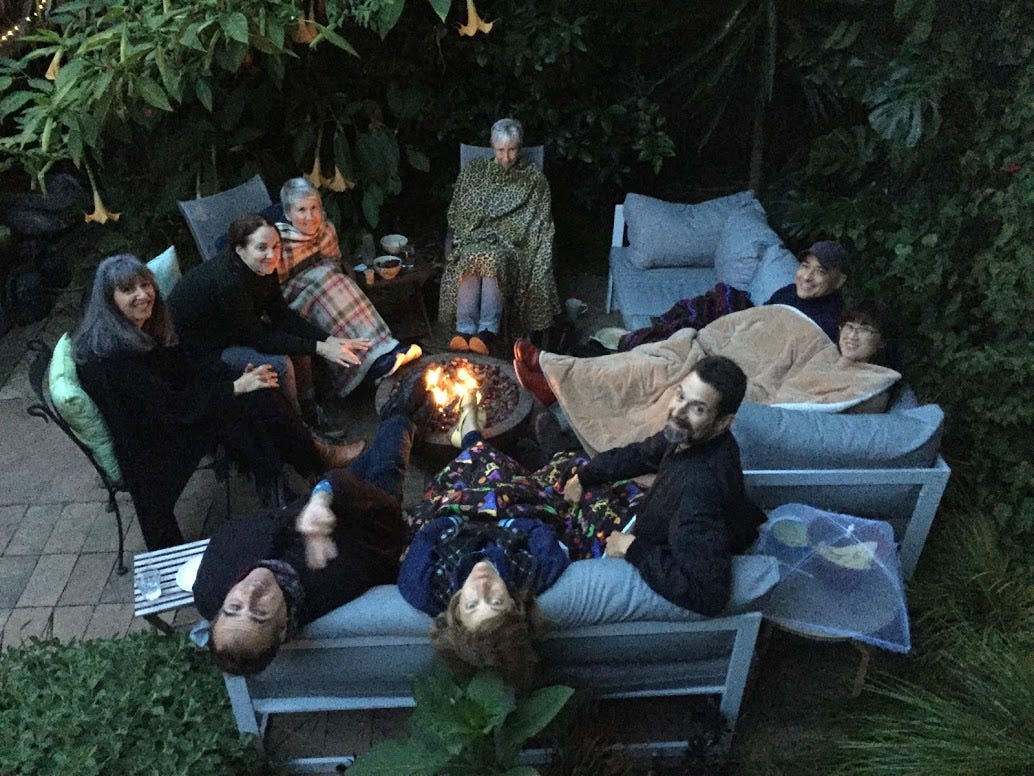
We still don’t gather enough with our friends. It’s rare that we get our act together for even a scruffy, casual hangout. We still feel like when we invite people over, we must provide a certain amount and caliber of food and drink. We still feel like our place shouldn’t be a total mess.
I challenge all of us to get over this.
Why not have spontaneous BYO dinner gatherings that give us more chances to just hang out? Why wait till circumstances are perfect to have people over? If we all agree to drop traditional but unnecessary expectations, we can make it easier for everyone to feel okay about scruffy hospitality.
It has to start somewhere. I’m trying to set an example, and I need to push myself to get over any discomfort and take the effort further. It’s worth it. Embracing scruffy hospitality will make our lives undeniably richer.
Do you have enough community in your life? I’d love to hear in the comments about ways you’re finding to create it!




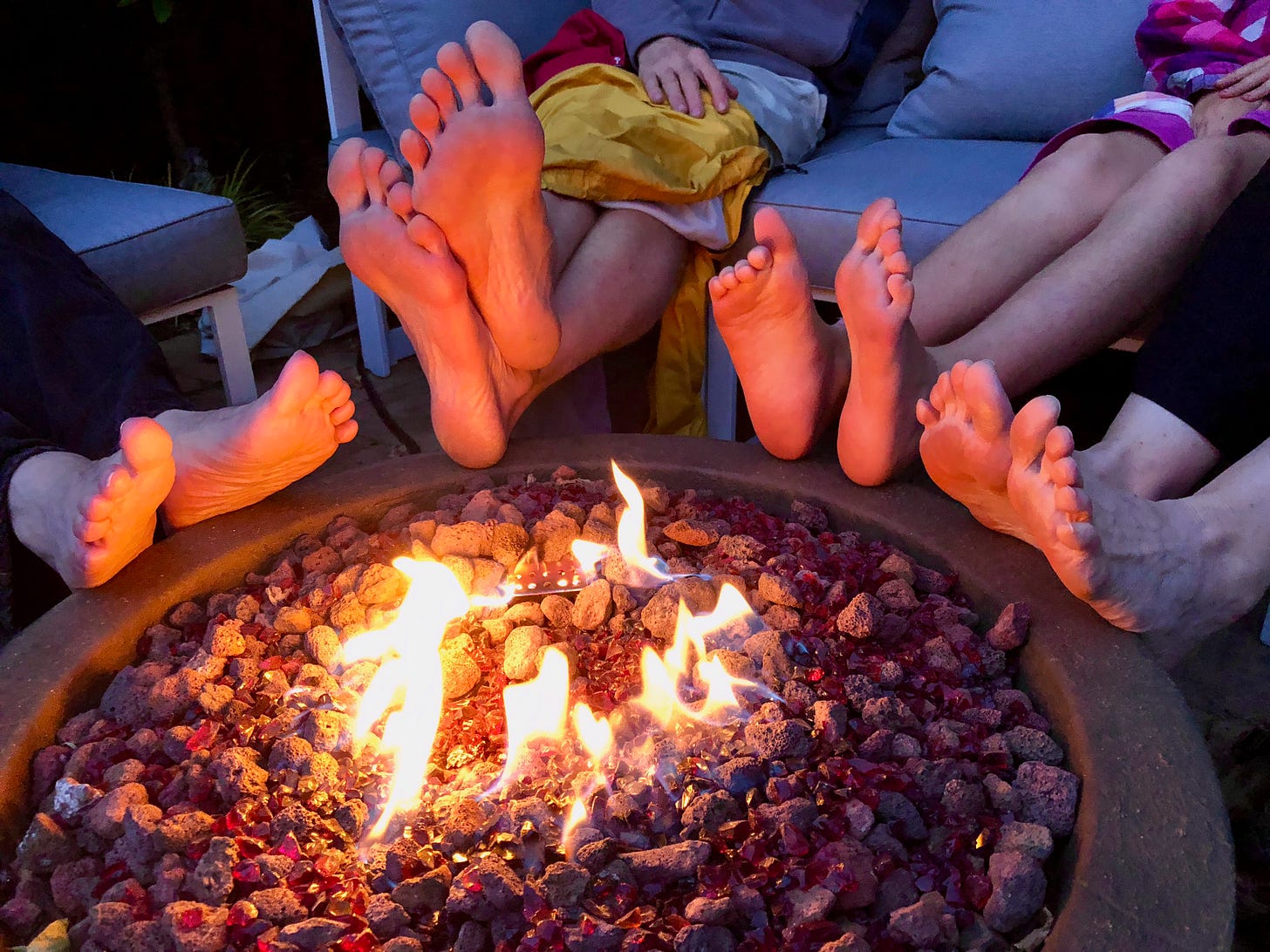
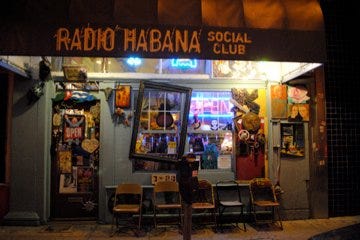


I love this idea of scruffy hospitality! I’m one of those that is constantly concerned about what the house looks like etc. which if I’m honest looks presentable much of the time!
I love this post, Rosana. I agree 100% that it is so important to create and be involved with the gatherings of friends. I'm so glad that we have in fact, tried and succeeded getting together despite the distance between LA and the Bay area; exploring new areas and sharing our friendship. We're due for another one. I wish we could be closer to you guys.